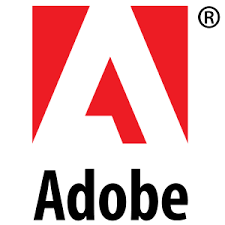Adobe FINALLY Makes a Move
 For months there has been this nagging little question at the back of my brain. It is -- "What the hell is Adobe thinking!?"
For months there has been this nagging little question at the back of my brain. It is -- "What the hell is Adobe thinking!?"
One day, with no warning and for no apparent reason to the average reader, they switched the eBook reading format from Adobe Reader to Adobe Digital Editions.
Now, Adobe Reader is a fine little piece of software. Sure it has some problems with reflowing text. It means that to read some text you have to to scroll around (from right to left) to read a full page. A nuisance for sure, but not a deal killer.
Adobe Reader functions on Windows, Mac and many Unix computers as well as on most hand held devices. It allows you to change how pages display. It even lets you rotate the page view from portrait to landscape. The search function is peppy and and if you want it, you can have an automated voice read to you. Pretty nifty.
But one day it was: Goodbye Reader; Hello Digital Editions (DE).
Initially DE only worked on Windows based computers. Now it works on a Mac, but still not Linux or Handhelds. The big breakthrough was when they struck a deal with Sony so that the Sony eReader could actually accommodate DE.
And instead of a more or less intuitive menu structure DE pretty much did away with menus. The DE interface gives new meaning to the idea of minimalist. The icons are hard to see and hard to decipher, I suspect this is in an effort to hide the fact that they really aren't very useful. Page display options are severely limited; search is deadly slow and there are no tools like zoom or automatic scroll.
It is apparently based on Flash and has the annoying characteristic of checking back to the Adobe site everytime you open it.
But here is my favorite part. DE claims to have "Powerful markup features." My question is where? I have looked high and low, but so far have been unable to highlight, annotate or otherwise markup anything. So I am not even sure what this claim means.
Almost every publisher creates an Adobe version of their title. Very often the only available digital format is Adobe. So why have publishers allowed Adobe to summarily change out the format and disenfranchise a big part of the market. I know that we used to sell lots of Adobe versions to people with handhelds.
The net result is a curious disconnect between book technology and book readers. Publishers love Adobe and none of the eReaders (with the exception of Sony) embrace it. Very odd.
Evidently, that is about to changes. Last week Adobe announced that they have a new SDK (software development kit) that will make it easy (?) to create Digital Editions formatted books for use on the Cybook, Illiad and Plastic Logic eReaders.
I am always a little suspicious of technology that is referred to by initials: SDK, OS and DRM come to mind.
Adobe has a lot to prove! Not to publishers, who evidently don't really care since eBooks are such a small part of their market. But to eBook retailers like me who have seen our sales impacted at a time when no one can afford to take an economic hit. And most importantly to readers who are increasingly frustrated by an industry that can not get it's act together.







